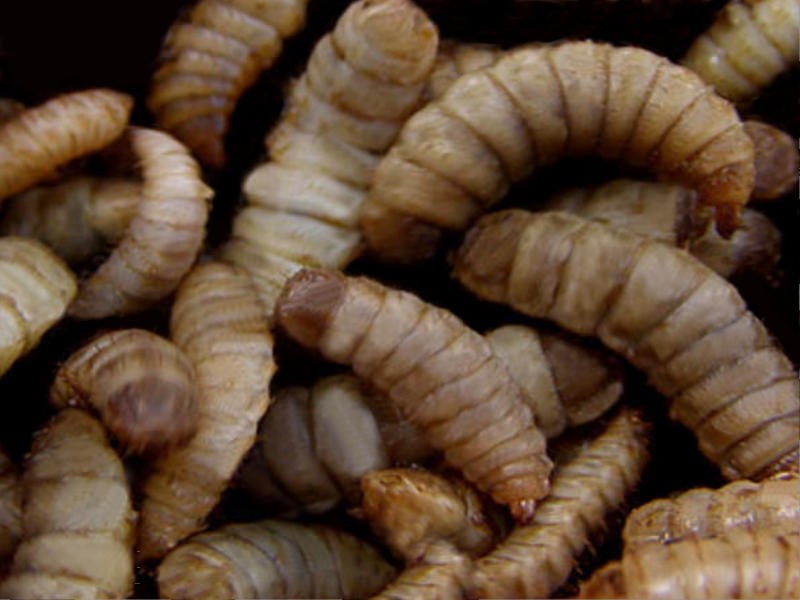If the idea of eating insects doesn’t appeal to you, stand by: soon you’ll be able to enjoy a nice pork chop – from a pig that was raised on insects.
Researchers from the University of Leuven, the Flemish Institute for Technical Research (VITO) and the Thomas More Kempen university college have been working together for the last four years to find ways of transforming insect protein into food not only for humans but also for farm animals, farmed fish and even cosmetics, Gazet van Antwerpen reports.
The team works mainly with the black soldier fly (Hermetia illucens), a common fly which has the useful property of being able to reproduce in huge numbers – more than 600 eggs in one batch is possible.
The larvae are then able to feed on just about anything, and the species can adapt to whatever is available. That makes them extremely useful for composting waste into fertiliser or biomass.
It also makes them a great source of food for fish, animals and humans.
The flies themselves are also used. The inner parts are made up of proteins and fats that can easily be worked into animal feed, which has widespread implications, as the EU currently imports about 70% of its animal feed. Developing a local source would not only cost less, but also produce less of an environmental effect.
The outer parts of the fly – the exoskeleton – is made of chitin, which can be broken down into chitosan, which is then used as a fertiliser and pesticide in one, while being entirely organic.
Related News
- Pandemic: Belgians ate more fruit & veg in 2020, but still not enough
- EU agency greenlights food products containing mealworms
At the moment, fish meal for farmed fish is made from other fish, which opponents argue is unsustainable, comes mainly from Peru, and is also morally dubious. Insect meal, on the other hand, has none of those problems.
Until now, research into insect use has been on a laboratory scale, with samples of up to 100g only. The Insect Pilot Plant project, however, now wants to scale up to production in kilograms, as a stepping stone to industrial production.
“To give you an idea: you need a hundred kilos of fly larvae to produce one kilo of active substance,” VITO researcher Leen Bastiaens told the paper. “Today we can grow and process 100 kilos of insects per day in Geel. That fills the gap between lab work and industrial production.”
And insects for human consumption are already making inroads in Belgium. Last year Colruyt supermarkets started selling Kriket snack bars, made with cricket flour. The manufacturers are now planning to bring out a breakfast cereal.

